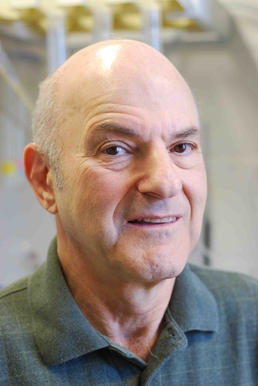George Aghajanian
American neuroscientist and psychiatrist
George K. Aghajanian is an American neuroscientist and psychiatrist known for his pioneering research in the field of neuropharmacology. His work has significantly contributed to the understanding of how psychoactive drugs affect the brain and behavior.
Early Life and Education[edit | edit source]
George Aghajanian was born in New Haven, Connecticut. He completed his undergraduate studies at Yale University, where he developed an interest in neuroscience. He went on to earn his M.D. from the Yale School of Medicine.
Career[edit | edit source]
Aghajanian began his career as a faculty member at the Yale School of Medicine, where he has held various positions over the years. He is currently a Professor Emeritus in the Department of Psychiatry.
Research Contributions[edit | edit source]
Aghajanian's research has focused on the effects of psychoactive drugs on the central nervous system. He is particularly known for his studies on the serotonin system and its role in mental disorders such as depression and schizophrenia. His work has provided valuable insights into the mechanisms of action of various antidepressants and antipsychotic drugs.
One of his notable contributions is the development of techniques to study the electrophysiological effects of drugs on individual neurons. This has allowed for a better understanding of how drugs influence neural circuits and neurotransmitter systems.
Awards and Honors[edit | edit source]
Throughout his career, Aghajanian has received numerous awards and honors for his contributions to neuroscience and psychiatry. These include the Gold Medal Award from the Society of Biological Psychiatry and the Julius Axelrod Prize from the Society for Neuroscience.
Legacy[edit | edit source]
George Aghajanian's work has had a lasting impact on the fields of neuroscience and psychiatry. His research has paved the way for the development of new treatments for mental disorders and has advanced the understanding of the brain's response to psychoactive substances.
See Also[edit | edit source]
References[edit | edit source]
External Links[edit | edit source]
Template:Yale School of Medicine
Search WikiMD
Ad.Tired of being Overweight? Try W8MD's physician weight loss program.
Semaglutide (Ozempic / Wegovy and Tirzepatide (Mounjaro / Zepbound) available.
Advertise on WikiMD
|
WikiMD's Wellness Encyclopedia |
| Let Food Be Thy Medicine Medicine Thy Food - Hippocrates |
Translate this page: - East Asian
中文,
日本,
한국어,
South Asian
हिन्दी,
தமிழ்,
తెలుగు,
Urdu,
ಕನ್ನಡ,
Southeast Asian
Indonesian,
Vietnamese,
Thai,
မြန်မာဘာသာ,
বাংলা
European
español,
Deutsch,
français,
Greek,
português do Brasil,
polski,
română,
русский,
Nederlands,
norsk,
svenska,
suomi,
Italian
Middle Eastern & African
عربى,
Turkish,
Persian,
Hebrew,
Afrikaans,
isiZulu,
Kiswahili,
Other
Bulgarian,
Hungarian,
Czech,
Swedish,
മലയാളം,
मराठी,
ਪੰਜਾਬੀ,
ગુજરાતી,
Portuguese,
Ukrainian
Medical Disclaimer: WikiMD is not a substitute for professional medical advice. The information on WikiMD is provided as an information resource only, may be incorrect, outdated or misleading, and is not to be used or relied on for any diagnostic or treatment purposes. Please consult your health care provider before making any healthcare decisions or for guidance about a specific medical condition. WikiMD expressly disclaims responsibility, and shall have no liability, for any damages, loss, injury, or liability whatsoever suffered as a result of your reliance on the information contained in this site. By visiting this site you agree to the foregoing terms and conditions, which may from time to time be changed or supplemented by WikiMD. If you do not agree to the foregoing terms and conditions, you should not enter or use this site. See full disclaimer.
Credits:Most images are courtesy of Wikimedia commons, and templates Wikipedia, licensed under CC BY SA or similar.
Contributors: Prab R. Tumpati, MD

